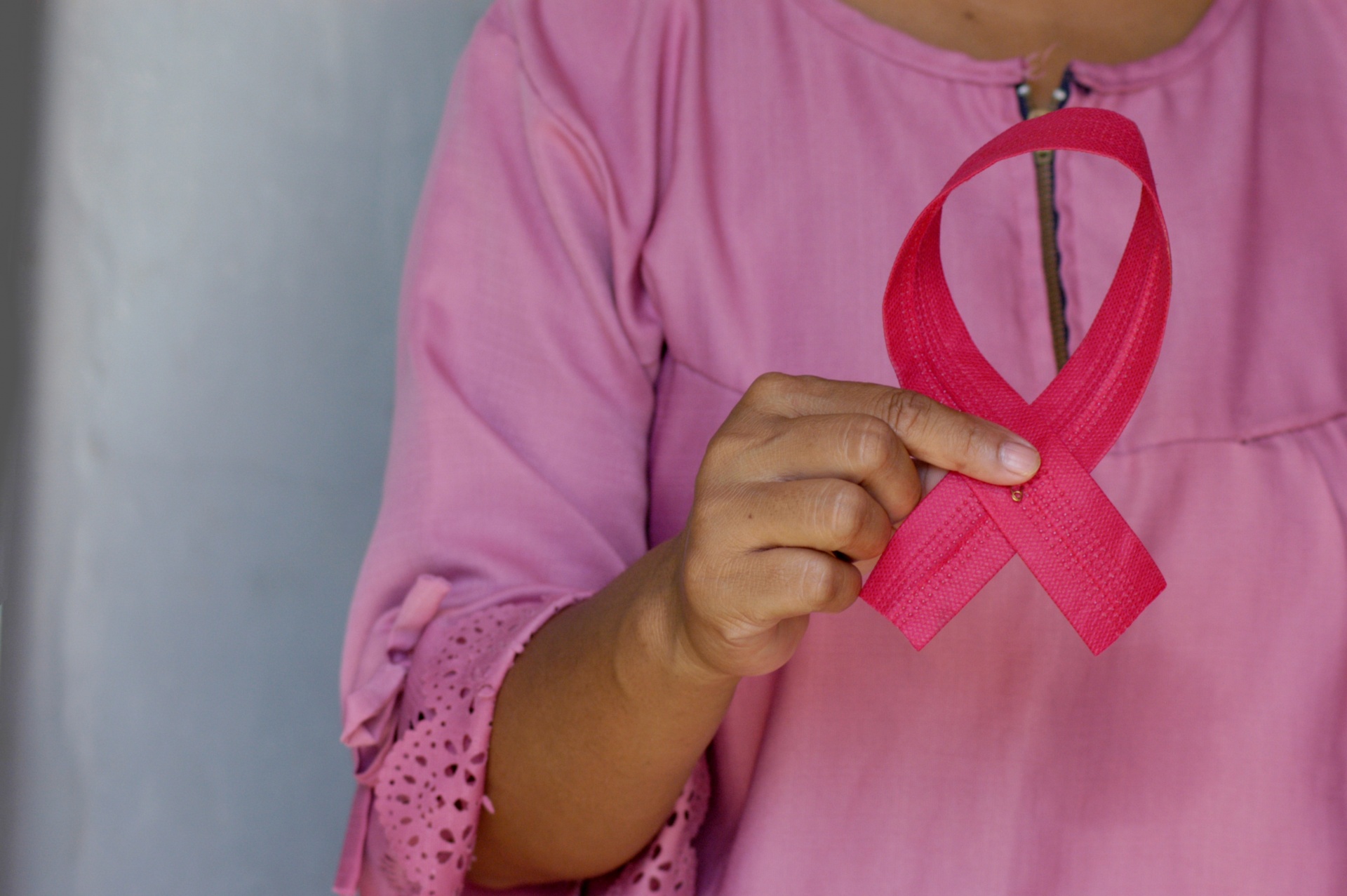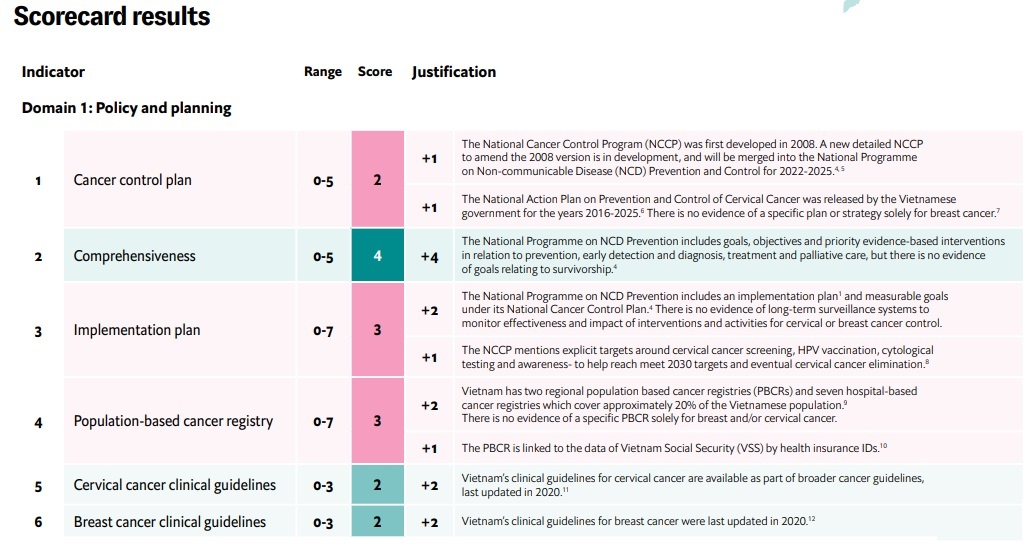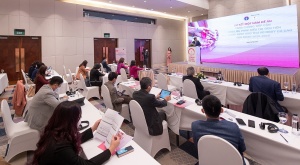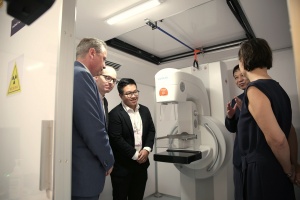Urgent action needed on breast and cervical cancer
 |
Women in the Asia Pacific face a disproportionately high risk of being impacted by breast and cervical cancer, compared to women globally. With strategic, targeted and sustainable intervention and action, emerging economies in the region will be better positioned to tackle the growing burden of breast and cervical cancer, and accelerate their progress towards the World Health Organisation (WHO) targets for both diseases, according to a report released today by the APAC WCC.
The “Impact and opportunity: the case for investing in women’s cancers in Asia Pacific” report, supported by Roche and published by Economist Impact, examines the burden of breast and cervical cancer in six countries in the Asia Pacific region: India, Indonesia, Malaysia, the Philippines, Thailand and Vietnam, and identifies market-specific gaps and opportunities for improvement.
In Asia, breast cancer incidence is expected to rise by 20.9 per cent between 2020 and 2030 and mortality by 27.8 per cent. Cervical cancer incidence is expected to increase by 18.9 per cent and mortality by 24.9 per cent in the same period.
Women in lower- and middle-income countries (including Vietnam) also have poorer outcomes when it comes to breast and cervical cancer, due to low awareness, stigma, and lack of access to quality and timely screening, diagnosis, treatment, and care services.
“The report highlights discrepancies in the region with respect to national readiness to tackle women's cancers. The development of the WCC provides an opportunity to trial various approaches towards prevention and control that can inform both national and regional cancer control strategies,” said Heather White, executive director of TogetHER for Health, a founding member of the APAC WCC.
 |
| Burden, incidence and mortality in Vietnam |
WHO has previously launched global initiatives, such as the Global Strategy for Cervical Cancer Elimination and Global Breast Cancer Initiative, to accelerate the elimination of cervical cancer and sustained decrease in breast cancer mortality.
On the back of the report, APAC WCC are now calling on countries in the Asia Pacific to identify, create, and capitalise on opportunities for progress to meet the WHO’s targets.
Given the high socioeconomic burden of breast and cervical cancer on not only women but also their families and wider society, funding for breast cancer and cervical cancer presents a strong investment case for governments. With current funding in the six countries lower than the global average, there is room for more to be done.
To understand more about the current gaps and opportunities, the report assessed five domains: policy and planning; prevention and screening; diagnostics and resource capacity; treatment and access; and awareness and education.
Some important elements of these domains were already in place to an extent across the six countries, such as relatively current National Cancer Control Plans, the implementation of HPV vaccination programmes and awareness and education programmes. However, many public sectors lacked critical diagnostic tools for breast and cervical cancer, such as mammography, biopsy, next-generation sequencing, CT scanning and genetic testing. There are also challenges in addressing cancer care access disparities in rural and poorer communities.
 |
| Women’s cancer country snapshot: Vietnam |
“The critical health risks confronting women in the Asia-Pacific region are undeniable. As part of the overall commitment to addressing the issue, the APAC WCC has initiated a focused report, delineating clear paths to tackle breast and cervical cancer,” said Ahmed Elhusseiny, area head of Roche Pharmaceuticals Asia Pacific. “The findings show that countries must prioritise women's health by strengthening political will, establishing robust plans and measures, enhancing screening and prevention efforts, and tailoring approaches to improve equitable access. It will also be crucial to work together to build capacity and funding as well as raise awareness as part of a comprehensive and patient-centric approach, to achieve the WHO’s targets for breast cancer and the elimination of cervical cancer.”
To help countries reverse the trend and achieve the WHO cervical cancer and breast cancer targets, the report called for a number of actions.
One action is to enhance performance tracking by building immunisation, screening and patient outcome registries for cervical and breast cancer.
Second is to accelerate the rollout of national immunisation programmes for HPV and universal cancer screening to provide more effective prevention. Governments should prioritise women’s cancers as key policy areas to achieve national targets for immunisation, screening and treatment.
Meanwhile, governments and global funding bodies should devise and implement effective and sustainable funding models. Also, it is vital to support people diagnosed with cancer by ensuring that referral and treatment pathways are clear and well-defined.
“The case for investment and action to tackle the alarming trends in women’s cancers is apparent from this report,” added Lance Little, head of Region Asia Pacific at Roche Diagnostics. “Through a collective approach from partners throughout the healthcare ecosystem, we can address the gaps and issues highlighted. This progress will create a positive impact for the hundreds of thousands of women in our region already living with cancer, and hopefully help us to protect many more women from the threat of cancer in years to come.”
 | Innovative solution for breast cancer patients during COVID-19 pandemic The COVID-19 outbreak has inhibited travel for many cancer patients who require ongoing treatment, especially while many hospitals require social distancing. During this tough time, how can they receive treatment without interruption and the fear of being infected? |
 | Improving access to innovative therapies for high-risk breast cancer patients in Vietnam The Vietnam Medical Association (VMA) and Roche Vietnam on January 14 reviewed the first year of implementation of the joint project to “Improve access to innovative therapies for high-risk breast cancer patients in Vietnam for 2020-2025”. |
 | Mammography truck offers free breast cancer screening in Ho Chi Minh City A free breast screening camp for women is taking place at Deutsches Haus, District 1, Ho Chi Minh City, from January 5 to 11. |
What the stars mean:
★ Poor ★ ★ Promising ★★★ Good ★★★★ Very good ★★★★★ Exceptional
Latest News
More News
- Congratulations from VFF Central Committee's int’l partners to 14th National Party Congress (January 25, 2026 | 09:46)
- List of newly-elected members of 14th Political Bureau announced (January 23, 2026 | 16:27)
- 14th Party Central Committee unanimously elects To Lam as General Secretary (January 23, 2026 | 16:22)
- List of members of 14th Party Central Committee announced (January 23, 2026 | 09:12)
- Highlights of fourth working day of 14th National Party Congress (January 23, 2026 | 09:06)
- Press provides timely, accurate coverage of 14th National Party Congress (January 22, 2026 | 09:49)
- Press release on second working day of 14th National Party Congress (January 22, 2026 | 09:19)
- Minister sets out key directions to promote intrinsic strength of Vietnamese culture (January 22, 2026 | 09:16)
- 14th National Party Congress: Renewed momentum for OVs to contribute to homeland (January 21, 2026 | 09:49)
- Party Congress building momentum for a new era of national growth (January 20, 2026 | 15:00)

 Tag:
Tag:














 Mobile Version
Mobile Version